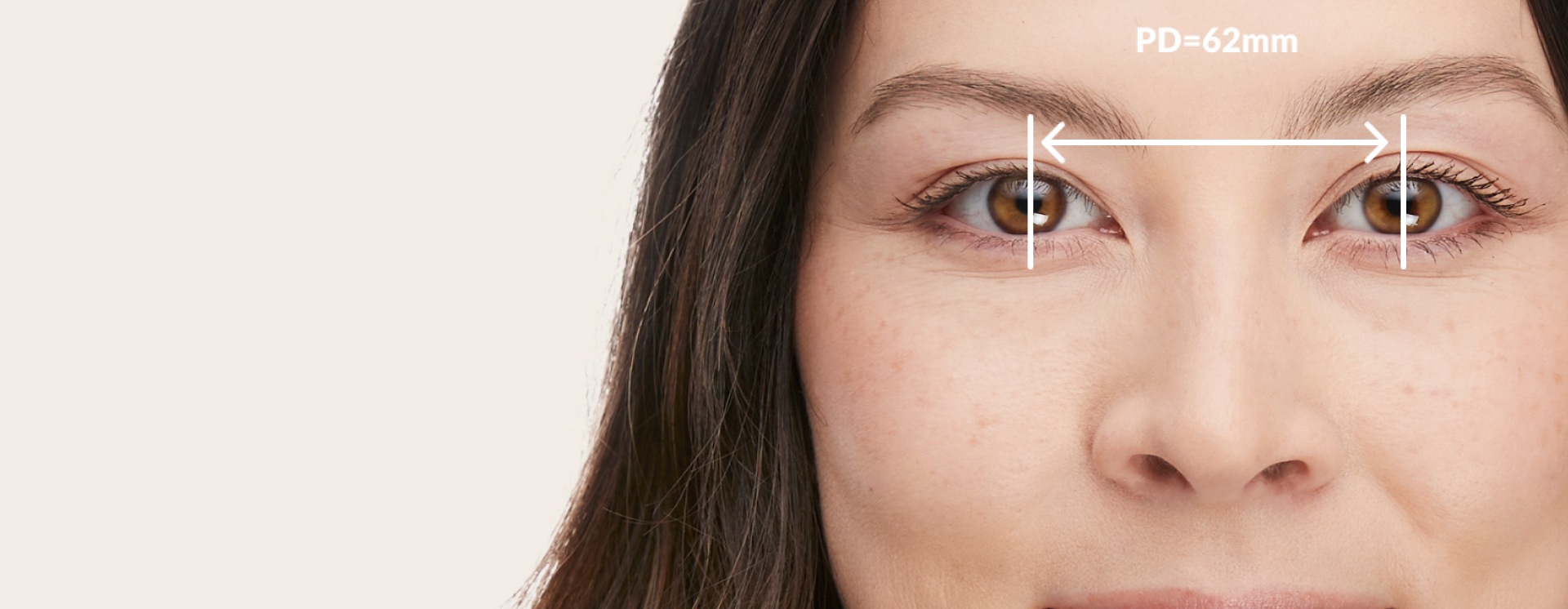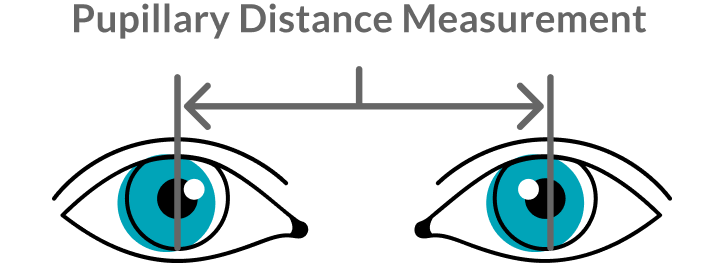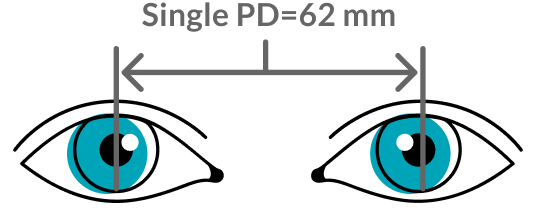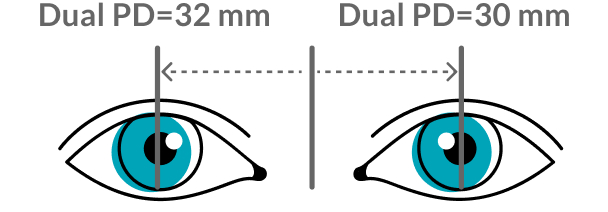
Get an accurate pupillary distance measurement in minutes
Measuring your pupillary distance is easier than ever.
Before ordering your glasses, you’ll need your pupillary distance (PD) measurement. Get an accurate measurement with our easy-to-use PD tool.
What is pupillary distance?
Pupillary distance (PD) measures the distance between the centers of your pupils. It’s used to help center a prescription lens accurately in your frames so you can see clearly. Your optician will usually measure your PD before ordering glasses or you can use our digital tool to measure it quickly online!

How to measure your PD in three easy steps
Our digital tool allows you to take a measurement right from your computer, without using a ruler!

Choose your device and remove your glasses
Well-lit areas work best.

Look directly into your screen
Adjust your camera if needed and stay centered. You’ll need a credit card or driver’s license for the next step.

Place a card against your forehead and take a picture
Using a standard ID card, snap a picture, then congratulations, you should have your new PD measurement!
Frequently asked questions
Why is your PD measurement important?
Every set of prescription lenses has an “optical center,” which is determined by pupillary distance. Pupillary distance is used to determine where you look through the lens of your glasses and should be as accurate as possible.
What is an average measurement?
The average adult’s PD is between 54-74 mm; kids' are between 43-58 mm.
What is “single” vs “dual” PD?

Single PD, or binocular PD, is the pupillary distance between the center of one pupil to the other.

Dual PD, or monocular PD, consists of two numbers and is the distance between the centers of each pupil to the bridge of the nose. Dual PD is usually written in the following notation: 32/30. The first number is always the right eye (OD) measurement, and the second number is the left eye (OS).


 Canada
Canada
